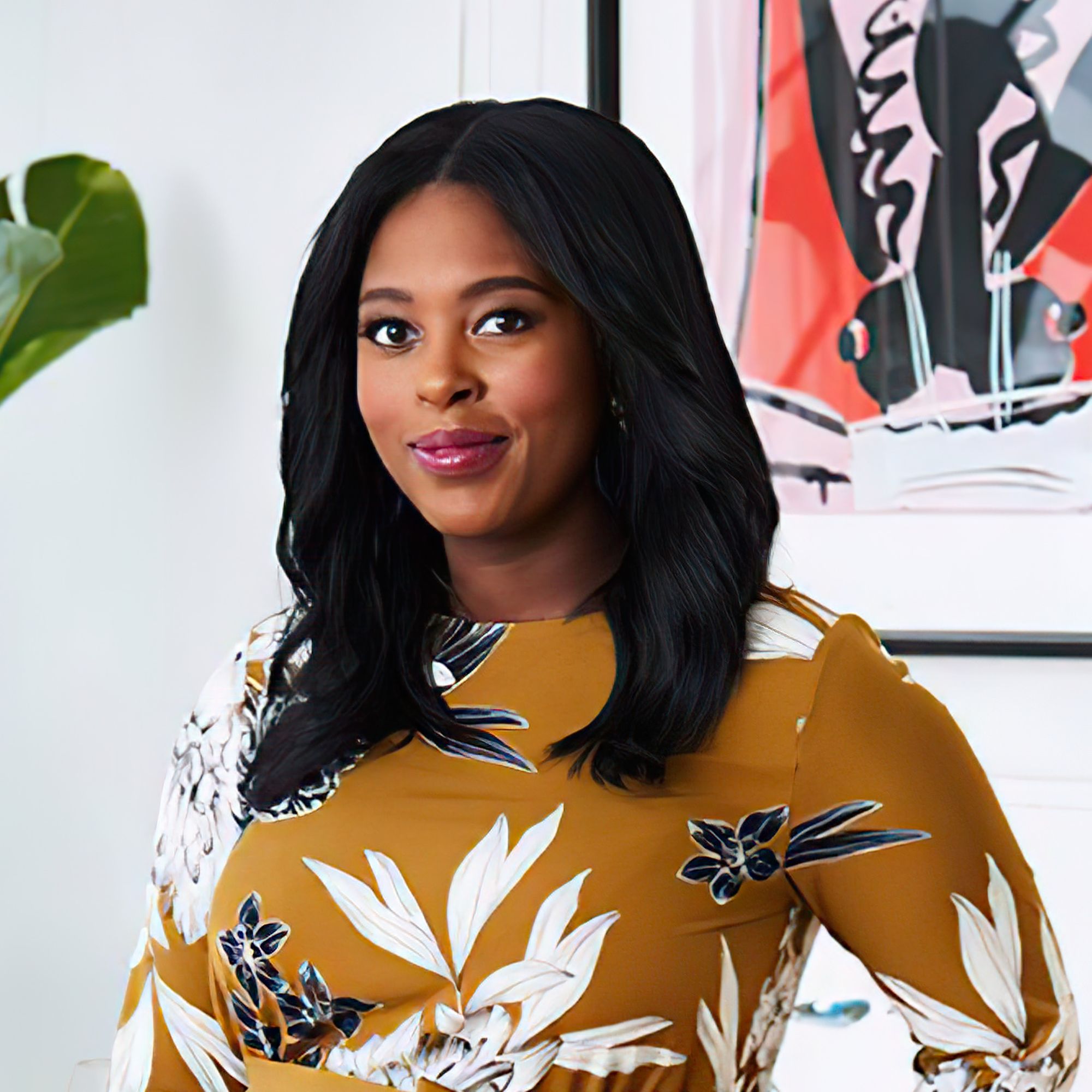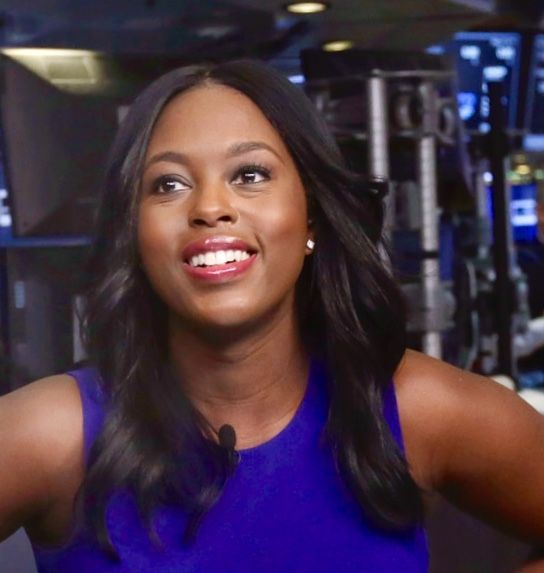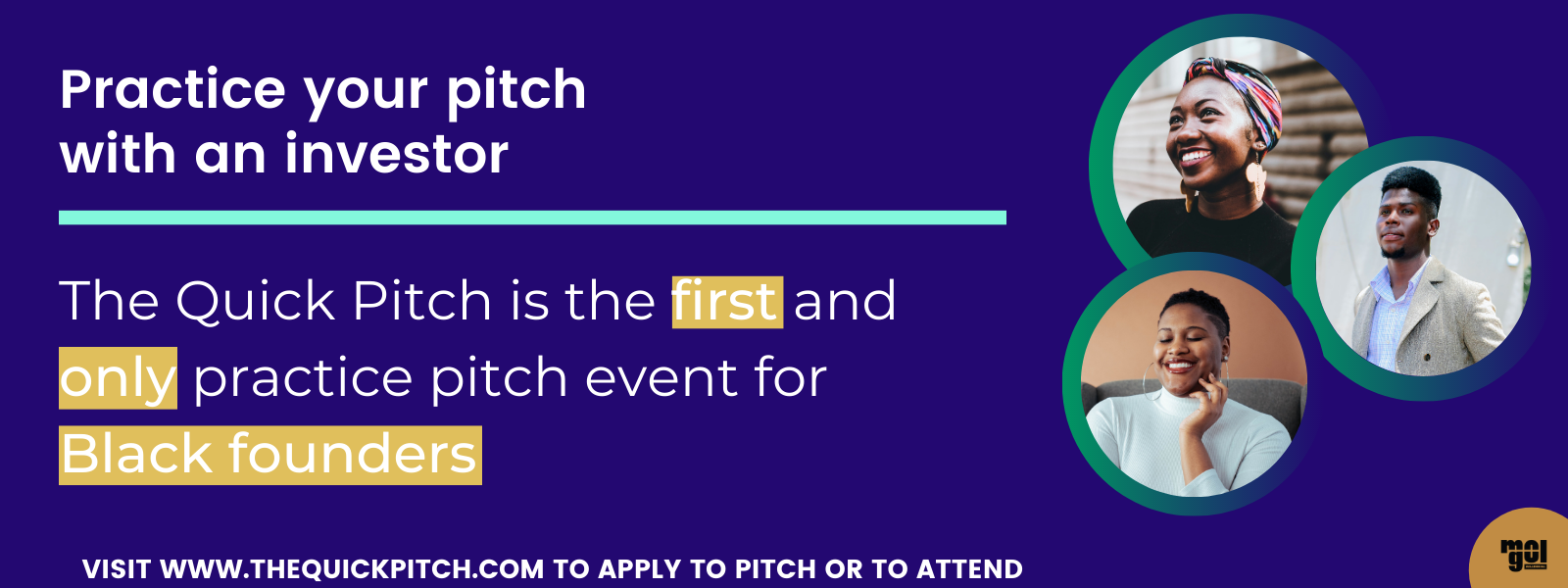In today’s Black startup news, you’ll often hear about the venture funding gap, as well as the Black tech leaders that are making history raising money.
For example, you’ll hear inspirational stories of Black startup leaders that have built unicorn tech companies like Tope Awotona, the CEO of Calendly, or you’ll see people from an all-Black cofounded team like Dave Salvant, the CEO of Squire raise over $100 million in venture funding. You’ll also see Black women breaking barriers like Crystal Etienne of Ruby Love, who has raised over $15 million to disrupt the femtech space.
Despite all of this Black founder magic dripping down your timeline, we don’t hear enough stories about the founders who have raised funding outside of the traditional VC model.
The gag is, yes we’re happy to see more Black founders raising hundreds of millions dollars, but there's still a wide funding gap in Black startups receiving those venture capital checks. Because of this, it’s crucial that we don’t rely on venture capital to get us to the next level in our business or define our value.
Outside of venture capital, there are several other ways to fund your business idea.
Just ask Kori Hale, the CEO of CultureBanx.

If you’re unfamiliar, CultureBanx is a media platform that creates business news for the hip hop culture. At CultureBanx, they create market-driven business, finance, tech, innovative news that is told through a culturally attuned lens. Prior to launching CultureBanx, Kori worked at another media startup, The Cheddar, and was also an investment banker.
Since creating CultureBanx, Kori has been able to get funding for her business without venture capital, and has learned about other funding sources in the process.
Keep reading for Kori’s tips on finding alternate sources of funding, how she thinks founders should prepare themselves to ask for money, and her advice for other Black media founders.
What was it like obtaining startup funding for CultureBanx?
Funding is not an easy journey. Whoever tells you or whatever article you read that talks about how a company went out and raised millions of dollars overnight, just know that it’s not the truth for 99% of companies.
Our funding journey at CultureBanx was of course thinking we needed to be venture backed. We tried to talk to ten million different investors, but nothing was happening out of it. Because of that, very early on, we took the pivot into finding alternative funding models. We were able to successfully get funding from the Walton Family Foundation, and that really helped us take things up a notch in our company.
What are some alternative funding models that early stage companies can seek out?
I will definitely say that getting grant money or any sort of equity-free money is the best way to go. Other sorts of models that people don't really pay a lot of attention to are things like credit line financing. There's also things like revenue-based financing that specifically looks at the amount of revenue your company is generating, and then you can go out and raise specifically against that. From there, the people that will fund your business are not looking to take equity out of your company; you would just pay them back at a set interest rate that you decide with whoever that funder is.
There's also grant financing and then of course there’s the traditional venture capital way, if you feel like that’s suitable for your company.
Those are the top ones that come to mind. For some reason, people are always talking about raising a friends and family round, but for a lot of minorities, we just don't have a friend and family member that we can go get a few hundred thousand dollars from. When your family doesn't have $100,000, it doesn't mean they don't believe in your company, they just don't have $100,000. I know VC’s who are investing at the Seed Stage or Pre-Seed stage like to see that you’ve gotten buy-in from people outside of your company, but sometimes for minorities, it’s hard to get that financial buy-in.
Related: How to secure startup capital when you didn't grow up rich
Nonetheless, despite this, you have to be able to differentiate the difference between a startup and a small business, because at the end of the day, every business idea doesn’t need to raise venture capital.
A startup is looking to have that high-growth, high-scale framework behind it, whereas a small business is like ‘we’re not necessarily saying that we're not going to scale, but we're not going to be beholden to investors’ time frames and timelines on when and how we should go about doing it; we're just gonna keep building this business.’
For example, let’s say you wanted to open up a barber shop, which is a great business idea because somebody is always going to need a haircut. Even though it's a great idea, it doesn’t mean you plan on 10X-ing it or making it into a business that has a venture-backable model.
What are your thoughts on media founders pitching at pitch competitions?
Pitch competitions for media companies are really, really tough. A lot of the competition you’ll be up against are built for that high-scale, high-growth model. This becomes hard for new media companies to be at in the beginning because the industry itself is so fractured.
I’ve seen some media founders look at accelerators instead but you have to be careful. Funny enough, I had a friend who sent me some accelerator program information recently. The accelerator was saying they were a 5-day, intensive media accelerator that would do all the things and teach you everything, and the fee was $3500.
I just couldn’t believe it. At the end of the day, once you pay the fee, these types of programs may make a few investor introductions for you, but you can go out and make those introductions for free on your own. You don't need to pay some accelerator to do that for you. I’m personally leery of these programs that are asking you to pay them.
The name of the startup game is introductions, connections, and networking. You don't need an accelerator program to do that for you; what you need are some good, smart people, and you can get in contact with those people on your own.
LinkedIn is my favorite resource for things like this. If there's a company I'm trying to get in contact with, I’ll literally go onto my LinkedIn and type in that company and see who I know that knows somebody that works at that company. From there, I’ll literally send out emails to these people and will follow up as needed. As a founder, you have to do the legwork; you can’t be lazy or you won’t get anywhere. If you're trying to be an entrepreneur, and you're lazy, this is not the right field for you.
Laziness and entrepreneurship across the board will never work. Some of the best advice I got coming into being an entrepreneur is that the successful companies are not the ones that necessarily had the best idea or that were the most innovative. But they were the ones that stuck it out longer than the next company. This startup life is literally about staying in the game as long as you can, and that in itself is going to weed out the lazy companies.
What should a founder prepare to do before seeking funding?
When you’re getting ready to ask for funding, you should definitely have a couple statistics and numbers that you can immediately showcase, like the market size that you're working in, and your TAM, or total addressable market. You should have your market size memorized and be able to spew out how your business fits in it. You should be able to share what you can get from the TAM based on your revenue and business model.
When you’re pitching, you have to speak in a language that the investor or the funder understands.
They’re going to always want to know what is the total addressable market that your company is playing in, and they'll also want to know your LTV to CAC ratio. If you don’t know how to calculate this, you should learn it because it’s definitely very important for you to know what the lifetime value (LTV) of your customer is, compared to your customer acquisition costs (CAC).
If you’re pre-revenue, pre-product, or have low-traction, what should you include in your pitch?
If you're pre-product, it's hard to show much traction, which is something that investors really like to see. Now, if you have low traction, it’s fine to show that. The investors just want to see your progress. They want to see how quickly you can go from zero to a higher level in your growth process. If your traction isn't high in one area of your business, you can show your growth in other areas, whether you had a lot of growth in your newsletter subscriber list or in your social media followers.
You can also bring in quotes from your core audience members where they're talking about how your business has impacted them.
Something like this can make a difference.
Even if your traction numbers aren’t through the roof, by showing these quotes, you’re saying that you have an engaged following and community.
Just know, your traction is more than your website visitors or number of paying customers.
If someone is an early-stage founder with little to no traction or revenue, how can they determine the level of their funding ask?
No matter what, you should ask what you think is going to get you a solid 18-24 months of runway, plus an extra 6 month reserve.
To me when it comes to valuation, the name of the game is a lot of BS. There's a lot of stuff that some founders throw at the wall and some people make up numbers too. It’s not a hard and fast formula that’ll get people to a certain valuation. But, however, there are methodologies that people look at to formulate this.
A lot of it is based on what other startups have been able to raise that you feel your company is aligned to - and that's probably the best way to look at it. For example, let’s say you think your media company is aligned with XYZ media company. When they raised their round, what valuation was it at? Can you analyze where their growth and traction was at, and how it might have contributed to their valuation?
Whatever public information you can find, use it. Whether that's the amount of followers they had, to their amount of employees, to the amount of content they were producing, you can use that as a scale to kind of measure where your business is at, and what you think you should be valued at.
What have you learned the most about seeking alternate funding and leading a Black media company?
When you’re looking for funding, you have to trust yourself, and always use your gut instinct. If there’s a way for you to just build and not give up equity in your company, even if that means not becoming a success overnight, you’ll be able to have a greater impact. Anything outside of that is not important. You have a right to be able to fully own your company and make the impact you set out to make.
Specifically for Black media companies, Black media ownership is super important, and is vital to the success, and to the well being of our communities. As media proprietors, creatives, and founders, it’s important we control the messaging and the narrative that is being put out into our community.
The best way to control this is by having majority or full ownership of what we create, and doing the work without giving up.


